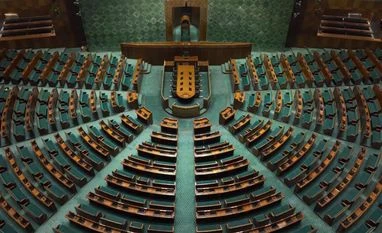This monsoon session of Parliament has witnessed ongoing clashes between the ruling party and the Opposition. During these sessions, complaints against Congress' Adhir Ranjan Chowdhury for misconduct were made. Chowdhury was also suspended from Lok Sabha on August 10, and the Privileges Committee will meet on August 18 to probe the misconduct allegation. Lok Sabha Speaker Om Birla had raised concerns about both Chowdhury and BJP's Virendra Singh's conduct during the no-confidence motion discussions. Singh apologised for his behaviour, and no measures were taken against him.
Earlier, complaints against TMC's Derek O'Brien and AAP's Raghav Chadha, relating to the House's privilege, were raised and referred to the privileges committee by Rajya Sabha Chairman Jagdeep Dhankhar.
BJP members Laxmikant Bajpayee and Surendra Singh Nagar filed complaints against O'Brien for posting expunged statements on his X (formerly Twitter) account. At the same time, Sushil Kumar Modi and Deepak Prakash filed complaints against Chadha for allegedly presenting misleading facts to the media and repeatedly violating the Chair's directions.
Here is a closer look at parliamentary privileges and what happens when violated.
What are parliamentary privileges?
More From This Section
Parliamentary privileges are special rights given to legislators that provide a level of protection from certain laws. The aim of this is to ensure legislators can perform their duties effectively without fear of repercussions.
In India, the privileges and immunities of the Lok Sabha and Rajya Sabha (the two houses of Parliament) are referred to as parliamentary privileges. These privileges are defined by Article 105 for the Lok Sabha, Article 122 for the Rajya Sabha, and their corresponding Articles 194 and 212 for the state legislatures.
While there is no exact list of privileges allotted to members of Parliament, it does allow the right to free expression during debates.
Origins of parliamentary privileges in India
Parliamentary privileges in India have their origins in the British Constitution. These privileges are borrowed features, just like other aspects such as the parliamentary government, the rule of law, single citizenship, and more. The Indian Constitution, specifically in Article 79 to Article 122, outlines the privileges and immunities enjoyed by the Parliament and its members.
The concept of parliamentary privileges in India can be traced back to 1833, when changes were made to the governor-general's council. Over time, the legislature evolved from a small body to a full-fledged law-making institution. The Government of India Act, 1935, further emphasised freedom of speech in the legislature.
Types of parliamentary privileges:
Parliamentary privileges in India are divided into collective and individual privileges.
Collective privileges
- The Indian Parliament can decide if its reports, debates, and proceedings should be published or not.
- The Parliament has the right to exclude outsiders from its proceedings.
- It can conduct secret sessions if needed.
- The Parliament can make rules for regulating its procedures, business conduct, and work adjudication.
- It can suspend or expel members for violating privileges.
- The Parliament can reprimand, admonish, or even imprison individuals who breach privileges.
- The Parliament is informed about the arrest, detention, conviction, imprisonment, and release of its members.
- The Parliament can initiate inquiries and call witnesses.
- The proceedings of the Parliament and its committees cannot be questioned in court.
- No arrests or legal processes can occur within the House precincts without the presiding officer's permission.
Individual Privileges
- Members of Parliament cannot be arrested during sessions, 40 days before and after sessions.
- They have the freedom of speech in the houses and are immune from court proceedings for their speech in Parliament.
- They are exempt from jury service and can refuse to give evidence or appear as witnesses during sessions.
Privilege motion
If members of Parliament feel that the parliamentary privileges have been breached, they can raise a privilege motion. Any member of Parliament can raise this with the chairman.
When a privilege motion is raised, the chairman can refer it to the "Privileges Committee." The chairman can also choose to nominate a ten-member committee. This committee itself also requires the appointment of a chairman by the Rajya Sabha chairman.
Understanding the right to raise a question of privilege:
To invoke the parliamentary privilege, two key conditions must be met:
- The matter under consideration must pertain to a recent occurrence, and
- The involvement of the legislative body is necessary. This right is present both in the Council (Rajya Sabha) and the Lok Sabha. In the Lok Sabha, the Speaker exercises authority in making decisions on privilege motions, acting as the initial level of scrutiny.
Role of the Privileges Committee
The Privileges Committee's role is to assess such cases and provide appropriate recommendations. This entails summoning relevant individuals and examining pertinent documents. After conducting a thorough review, the committee generates a report. If the Council has not stipulated a specific timeframe, the report must be presented within one month of the Committee's referral.
Consideration and amendments to the report
Following the presentation of the report, a motion is required for its consideration. Amendments can be proposed during this stage. The chairman, committee members, or any other member of the House can introduce motions for agreement, disagreement, or agreement with amendments to the report's recommendations.
Numerous privilege notices are declined, and punitive measures are advised only in a handful of instances.
)